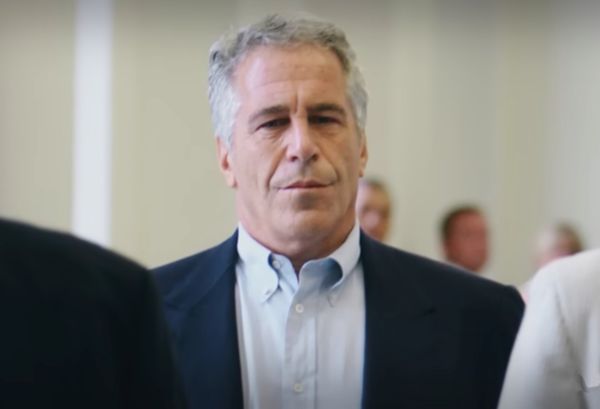I filed a motion to unseal and oppose pseudonymity last week in Doe v. Town of Lisbon (thanks to my students Ireland Larsen, Matthew Veldman, Erin Yonchak for their work on it), and I thought readers might find it interesting. The backstory, from a 2020 N.H. Supreme Court decision (see also this February post):
The [New Hampshire] DOJ currently maintains a list of police officers who have engaged in misconduct reflecting negatively on their credibility or trustworthiness. The list, formerly known as the "Laurie List," is now called the EES [Exculpatory Evidence Schedule]. See State v. Laurie (N.H. 1995) (overturning a defendant's murder conviction because the State failed to disclose certain employment records of a testifying detective that "reflect[ed] negatively on the detective's character and credibility").
The EES list is public, and is also used by defense lawyers to challenge the officers' credibility on the stand, which I take it makes the officers on the list far less employable. Police officers or ex-police-officers therefore often sue to have their name removed from the EES, and state trial courts have allowed such lawsuits to proceed under seal. (I doubt that's permissible, but that's a separate matter.) In this case, the plaintiff police officer included federal constitutional claims as well as state law claims in his filing, so the Town of Lisbon removed the case to federal court, where it's now proceeding pseudonymously instead of under seal. Here is the rationale for sealing from Doe's motion to seal in state court, which I expect will be the argument he will for pseudonymity as well:
The Plaintiff is concerned that publicly having his name as plaintiff will undercut any relief obtained in this matter, and will further jeopardize his ability to obtain future employment in the criminal justice and policing field—even if he is fully vindicated in this matter….
The plaintiffs' interest in having this lawsuit be filed under seal, while his Constitutional rights are vindicated, is a compelling interest that outweighs the right of the public's right of access to this litigation's docket.
In the motion—which is in some ways similar to that in the Ohio Supreme Court police officer pseudonymous libel lawsuit case, Olthaus [M.R.] v. Niesen—I argue that plaintiff shouldn't be allowed to proceed pseudonymously, and I also ask the court to unseal the unredacted version of the state court record (the redactions basically being the plaintiff's name, so that's connected to the pseudonymity):
Eugene Volokh, a professor at UCLA School of Law, moves to unseal the state court record filed in this Court, and to oppose the continued pseudonymity of the plaintiff. Volokh would like to write about this case, in his academic work and on his blog, hosted by Reason Magazine, http://reason.com/volokh; but he is unable to do so effectively because plaintiff's name is not identified, and because the unredacted state court record, filed in this Court is sealed…. He is therefore seeking to assert his own common law and First Amendment right of access to court records.
He has filed a separate motion to intervene in this case for the purpose of filing this motion….
[I.] This Court is not bound by the state court sealing order and should apply federal procedural law related to sealing and pseudonymity
"Once a case has been removed to federal court, it is settled that federal rather than state law governs the future course of proceedings, notwithstanding state court orders issued prior to removal." Granny Goose Foods, Inc. v. Brotherhood of Teamsters & Auto Truck Drivers Local No. 70, 415 U.S. 423, 437 (1974). "Federal law governs motions to seal records in federal court even when a state law addresses the type of records at issue." Haynes v. Haggerty, 19-cv-00164 (D. Vt. 2020). This Court should thus decide the motion under federal law, and is not bound by the state court's order. See, e.g., Doe v. Doe, 1:20-cv-01002-JG, *3 (N.D. Ohio July 20, 2020), https://storage.courtlistener.com/recap/gov.uscourts.ohnd.265633/gov.uscourts.ohnd.265633.26.0.pdf (overturning a state court's grant of pseudonymity upon its removal to federal court); Parson v. Farley, 352 F. Supp. 3d 1141, 1144 (N.D. Okla. 2018) (overturning state sealing order after removal to federal court).
This Court, rather than the state court, "now has the strongest interest in determining whether its own judicial records will remain sealed or will be accessible to the public." Parson, 352 F. Supp. 3d at 1152. And this is just a special case of the general point that, "as set forth in 28 U.S.C. § 1450, the Court has authority to revisit, modify, and dissolve state court orders entered prior to removal." Hauff v. Petterson, 755 F. Supp. 2d 1138, 1145 (D.N.M. 2010).
[II.] There is a strong presumption against the sealing of judicial records
The right to public access "protects the public's ability to oversee and monitor the workings of the Judicial Branch," and "promotes the institutional integrity of the Judicial Branch." Doe v. Public Citizen, 749 F.3d 246, 263 (4th Cir. 2014). In determining the appropriateness of the sealing of court records, "[t]he starting point must always be the common-law presumption in favor of public access to judicial records." Nat'l Org. for Marriage v. McKee, 649 F.3d 34, 70 (1st Cir. 2011). "The presumption favoring public access … extends to both civil and criminal trials." Id.
And this right of access is protected both by the common law and the First Amendment. "First Amendment guarantees are implicated when a court decides to restrict public scrutiny of judicial proceeding," including the records in civil cases. Doe v. Stegall, 653 F.2d 180, 185 & n.10 (5th. Cir. Unit A Aug. 1981). The "federal courts of appeals have widely agreed that the [First Amendment right of public access] extends to civil proceedings and associated records and documents." Courthouse News Serv. v. Planet, 750 F.3d 776, 786 (9th Cir. 2014); New York Civil Liberties Union v. New York City Transit Auth., 684 F.3d 286, 305 (2d Cir. 2012); Doe v. Pub. Citizen, 749 F.3d 246, 269 (4th Cir. 2014).
This First Amendment right of access applies to "the press and general public," Globe Newspaper Co. v. Superior Court, 457 U.S. 596, 606 (1982); Volokh is included in both those categories. And the First Amendment right of access extends to orders, pleadings, and non-discovery motions. Associated Press v. U.S. Dist. Ct. for Cent. Dist. of California, 705 F.2d 1143, 1145 (9th Cir. 1983) ("We thus find that the public and press have a first amendment right of access to pretrial documents in general."); Lugosch v. Pyramid Co. of Onondaga, 435 F.3d 110, 124 (2d Cir. 2006); Rushford v. New Yorker Mag., Inc., 846 F.2d 249, 253 (4th Cir. 1988).
"Only the most compelling reasons can justify the non-disclosure of judicial records." Poliquin v. Garden Way, Inc., 989 F.2d 527, 533 (1st Cir. 1988) (cleaned up) (citing FTC v. Standard Financial Management Corp., 830 F.2d 404, 410 (1st Cir. 1987)); see also Siedle v. Putnam Investments, Inc., 147 F.3d 7, 10 (1st Cir. 1998). "The mere fact that judicial records may reveal potentially embarrassing information is not in itself sufficient reason to block public access." Siedle, 147 F.3d at 10 (allowing sealing for the limited purpose of protecting attorney-client privileged materials). "Public access to judicial records and documents allows the citizenry to 'monitor the functioning of our courts, thereby insuring quality, honesty and respect for our legal system.'" Nat'l Org. for Marriage, 649 F.3d at 70 (1st Cir. 2011) (quoting FTC, 830 F.2d at 410).
[III.] There is a strong presumption against pseudonymity
The presumption of public access generally forbids not just sealing but also pseudonymity, which is a limited form of sealing. "Pseudonymous proceedings in federal court are generally disfavored because 'there is a strong common law presumption favoring public access to judicial proceedings and records.'" Does v. Mills, No. 1:21-cv-00242, 2021 WL 6197377 (D. Me. Dec. 30, 2021) (quoting In re Salem Suede, Inc., 268 F.3d 42, 45 (1st Cir. 2001)). "The Federal Rules of Civil Procedure require that the identities of the parties to a case be disclosed. See Fed. R. Civ. P. 10(a) ('The title of the complaint must name all the parties … .')." Doe v. Public Citizen, 749 F.3d 246, 273 (4th Cir. 2014). The public has a "legitimate interest in knowing all of the facts involved, including the identities of the parties." Doe v. Frank, 951 F.2d 320, 322 (11th Cir. 1992).
"The public's right to know the true identity of the parties is concomitant with the right of public access to judicial proceedings and records." Doe v. Provident Life & Accident Ins. Co., 176 F.R.D. 464, 467 (E.D. Pa. 1997). "[T]he plaintiff instigates the action, and, except in the most exceptional cases, must be prepared to proceed on the public record." Doe v. Bell Atl. Bus. Sys. Servs., Inc., 162 F.R.D. 418, 422 (D. Mass. 1995). It is therefore a "requirement that pseudonymity be limited to the 'unusual case.'" United States v. Stoterau, 524 F.3d 988, 1013 (9th Cir. 2008). And as with sealing, pseudonymity is presumptively forbidden by the First Amendment as well as the common law. See, e.g., DePuy Synthes Prod., Inc. v. Veterinary Orthopedic Implants, Inc., 990 F.3d 1364, 1370 (Fed. Cir. 2021); In re Sealed Case, 931 F.3d 92, 96 (D.C. Cir. 2019); United States v. Microsoft Corp., 56 F.3d 1448, 1464 (D.C. Cir. 1995); Stegall, 653 F.2d at 185.
This strong presumption of public access exists for good reason: It "enable[s] interested members of the public, including lawyers, journalists, and government officials, to know who's using the courts, to understand judicial decisions, and to monitor the judiciary's performance of its duties." Goesel v. Boley Intern. (H.K.) Ltd., 738 F.3d 831, 833 (7th Cir. 2013). Knowing the plaintiff's name, journalists, scholars, or activists could research past cases or controversies in which the plaintiff was involved, try to contact the plaintiff directly to hear his story, or reach out to others in the town or police department who might provide important context for the case. Without the plaintiff's name, such writers are limited to going through the plaintiff's counsel, who may be unwilling to grant access.
It is the right and duty of the people to hold public officials accountable and to supervise their actions (including the actions of courts). This task becomes much harder when the identities of the key actors are concealed.
[IV.] These presumptions against sealing and pseudonymity are not rebutted here
Courts have routinely found that mere economic or reputational harm—which is what the plaintiff seeks to use pseudonymity to avoid (see Doc. No. 8, at 15)—is not enough to overcome the strong presumption against pseudonymity. The plaintiff in this case is like the typical plaintiff who seeks and is denied pseudonymity in employment and other discrimination cases. "Plaintiff wants what most employment-discrimination plaintiffs would like: to sue their former employer without future employers knowing about it. But while that desire is understandable, our system of dispute resolution does not allow it." Doe v. Fedcap Rehab. Servs., Inc., No. 17-cv-8220 (JPO), 2018 WL 2021588, *3 (S.D.N.Y. 2018). Pseudonymity should instead be reserved for the atypical case so as not to "create an exception that virtually swallows the rule." Doe v. Prudential Ins. Co. of Am., 744 F. Supp. 40, 41-42 (D.R.I. 1990).
"Economic harm or mere embarrassment are not sufficient to override the strong public interest in disclosure." Doe v. Bell Atl. Bus. Sys. Servs., Inc., 162 F.R.D. 418, 422 (D. Mass. 1995); Doe v. Word of Life Fellowship, Inc., 2011 WL 2968912, *2 (D. Mass. July 18, 2011). Courts have repeatedly rejected pseudonymity even when the potential allegations were harmful to the parties' economic prospects. Word of Life Fellowship, 2011 WL 2968912, *2 (D. Mass. July 18, 2011) (rejecting pseudonymity for alleged child molester, though of course making such an allegation public would badly damage the social and economic prospects of the accused); Southern Methodist University Ass'n of Women Law Students v. Wynne & Jaffe, 599 F.2d 707 (5th Cir. 1979) (rejecting pseudonymity for women alleging sex discrimination at large law firms despite the threat of retaliation from current and future employers); MacInnis v. Cigna Grp. Ins. Co. of Am., 379 F. Supp. 2d 89 (D. Mass. 2005) (rejecting pseudonymity for a plaintiff challenging denial of mental health benefits, though the plaintiff feared that he would be stigmatized if his mental illness were disclosed).
"[C]oncerns about annoyance, embarrassment, economic harm, and scrutiny from current or prospective employers do not involve information 'of the utmost intimacy'; rather, they constitute the type of concerns harbored by other similarly situated employees who file retaliation lawsuits under their real names." Doe v. Univ. of Pittsburgh, No. 1:17-cv-213, 2018 WL 1312219 (W.D. Mich. Mar. 14, 2018). "To depart in this case from the general requirement of disclosure would be to hold that nearly any plaintiff bringing a lawsuit against an employer would have a basis to proceed pseudonymously." Michael v. Bloomberg L.P., No. 14-cv-2657 TPG, 2015 WL 585592, *3 (S.D.N.Y. Feb. 11, 2015).
The theory that "publicly having [Doe's] name as plaintiff will undercut any relief obtained in this matter," Doc. No. 8, at 15, has generally not been accepted as a basis for pseudonymity or sealing in these sorts of cases. For example, in Coe v. U.S. Dist. Court for Dist. of Colorado, a doctor sued to enjoin public hearings before the state medical board about alleged sexual misconduct. 676 F.2d 411 (10th Cir. 1982). The plaintiff contended that he should be granted pseudonymity, because "disclosure of his true identity would cause irreparable and immediate destruction of his property and liberty interests which he seeks to protect." Id. at 413. But the court held that Rule 10(a) controlled and that plaintiff's "interest in privacy is outweighed by the public interest." Id. at 414.
More broadly, this "will undercut any relief" claim could likewise be raised by a vast range of employment law plaintiffs, libel law plaintiffs, and other litigants. If accepted, it too would swallow the rule in favor of public access.
[V.] There is a particular public interest in lawsuits brought by police officers, and lawsuits brought against governments
The status of the parties in this case also strengthens the public's interest in access to the parties' names and to the state court record. The plaintiff is a former police officer who wishes to serve as a police officer again. Doc. No. 8, at 15. Police officers are public officials who wield immense power and enforcement discretion, so the public has an interest in how this litigation relates to the plaintiff's past and possible future service. See Mangual v. Rotger-Sabat, 317 F.3d 45, 65-66 (1st Cir. 2003) (concluding police officers are generally "public official[s]" for libel law purposes).
The public has a heightened right of access when, "because of the subject matter of this litigation, the status of the litigant as a public figure, or otherwise, there is a particularly strong interest in knowing the litigant's identities, beyond the public's interest which is normally obtained." Doe v. Megless, 654 F.3d 404, 409 (3d Cir. 2011). Indeed, courts have recognized that the presumption against pseudonymity fully applies to police officer plaintiffs. See Doe v. Mckesson, 935 F.3d 253, 266 n.8 (5th Cir. 2019) (rejecting pseudonymity for police officer plaintiff); State ex rel. Cincinnati Enquirer v. Shanahan, Slip Opinion No. 2022-Ohio-448 (2022) (same, in libel case).
Likewise, the defendant is a government entity that plaintiff is accusing of misconduct. "The appropriateness of making court files accessible is accentuated in cases where the government is a party: in such circumstances, the public's right to know what the executive branch is about coalesces with the concomitant right of the citizenry to appraise the judicial branch." FTC v. Standard Fin. Mgmt. Corp., 830 F.2d 404, 410 (1st Cir. 1987). The public has a right to monitor government power and know the details of the accusation, including who is making it. Moreover, if the plaintiff succeeds on his claim for damages, the judgment will be paid from taxpayer funds, "and the public certainly has a valid interest in knowing how state revenues are spent." M.M. v. Zavaras, 139 F.3d 798, 803 (10th Cir. 1998) (rejecting pseudonymity in part on these grounds).
Conclusion
The plaintiff has not overcome the strong presumption of the public's right of access to judicial records and against pseudonymity in litigation. The presumption protects the public's right to monitor what the judiciary is doing, and, in cases such as this one, what executive agencies are doing. That right is hollow when the legal system hides the party names and judicial records that give context to the story. For these reasons, Volokh requests that the Court unseal the state court record, and order the plaintiff to litigate under his true name.
The post Pseudonymous Lawsuit by Police Officer Over His Placement on "Exculpatory Evidence List" appeared first on Reason.com.







